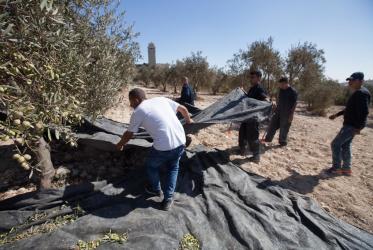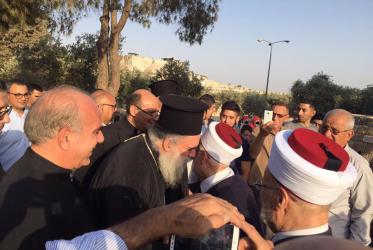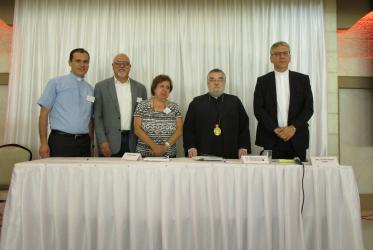Displaying 41 - 60 of 192
WCC Executive Committee emphasize peace, justice and unity
19 November 2017
WCC Executive Committee to convene in Amman
16 November 2017
WCC urges EU to oppose proposed “Greater Jerusalem” legislation
26 October 2017
Holy Land tourism goes beyond traditional paths
05 October 2017
Pentecost is time to pray for unity and just peace
05 June 2017
Holy work for the Holy Land
29 March 2017
USA pastors reflect on Holy Land pilgrimage
14 March 2017









